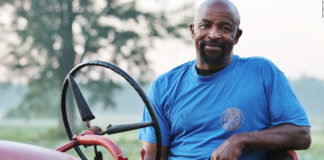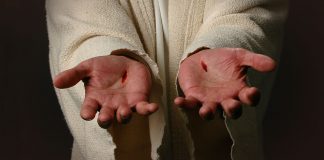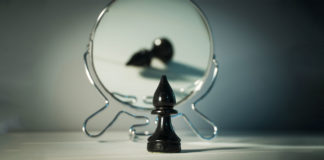The light of the eyes and mind
In Mexico, diabetic retinopathy is a significant challenge. Professor Pedro Gomez is the director of the Ophthalmology Institute of the University Hospital of Montemorelos in Mexico, renowned for the highest number of eye surgeries in Latin America.
Every week’s human rights day
Article 24 of the Universal Declaration of Human Rights is a counterpoint to the previous article in the Declaration that recognises the right to work and to do so in fair conditions. After affirming the human right to work, Article 24 reads, “Everyone has the right to rest and leisure, including reasonable limitation of working hours and periodic holidays with pay.” It is a...
Food for life
A lot is said and written about food, and a fair share of the promises we make are related to it. We might decide to eat more healthfully or perhaps we wish to diminish food waste. Unfortunately, our promises are often quickly forgotten, because destructive habits are hard to forsake. There are, however, people who have found ways to transform not just their...
Amid people and books
Meetings with people and books have shaped the space for a sometimes unequal, sometimes unsatisfactory growth between the human I am and the one I would like to be.
The sprouts of genomics
Although the results do not seem spectacular yet, at least to the majority of the population, probably the most remarkable advances in the field of healthcare in the last 30 years relate to the mapping of the human genome (completed in 2003), the genome of other animal and plant species, and the development of bioinformatics.
The crossroads: what if I feel the church is superficial or fundamentalist?
What is my reason for joining or staying in a church? Why do I want to pass on my spiritual heritage to my children? Why do I invite my friends to church? Or what are my reasons for saying no to church invitations?
Incognito faith and the failures of political correctness
John the Baptist's call—"Repent, for the kingdom of heaven has come near"—succeeded in bringing Jews "from Jerusalem and all Judea and the whole region of the Jordan" to the desert where the prophet preached, to confess their sins and be baptised. Two thousand years later, the exhortation to "repent" is buried under a mountain of pejorative associations.
COVID-19: Crisis prayer and the crisis of our prayers
I was descending from Omu Peak, in the Bucegi Mountains, with a few dozen young people. It had not been an ideal hike, and we were behind schedule. The forest made the darkness even thicker as it began to cover the mountain, and slowly, our minds as well.
The fragility of the good news about COVID-19 mortality
The mortality rate of COVID-19 remains high, but not as high as its transmission rate, and this good news needs nuances and explanations.
The God particle?
Very few ordinary people seem to be overflowing with passion for quantum physics, as the field involves a high degree of abstraction and relatively complicated mathematical equations.
The One who couldn’t live knowing that I was dying
Love stories have the ability to captivate us with the details of an undying beauty, to overshadow the uncertainties about their permanence, to introduce through the front door the hope that one day we will live such a story, which will bear the signature of eternity.
“You can beat this!” | Milestones on the road from fear to success
He was born in 1935 in Narvik, Norway, beyond the Arctic Circle, at a time when the clouds of war were gathering. In 1940, in the space of a few months, Narvik was controlled by Germany, conquered by the Allies, and then left to the Germans.
Life after lockdown: a return to the rat race?
On any given day, a typical person checks the clock several dozen times.
Everything about the person who can hold you back: A short essay about you
Albert Einstein didn't speak until he was 4 years old, and didn't read until he was 7. His parents thought he was mentally disabled, and one of the teachers described him as "mentally slow, unsociable, and adrift forever in his foolish dreams." He was expelled from school and denied admission to the Zurich Polytechnic.
Does God listen to my prayers?
If there is a crossroads where both the path of faith and the path of doubt or unbelief begin, it is prayer.


























